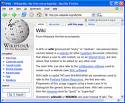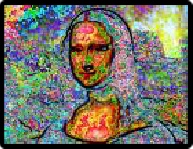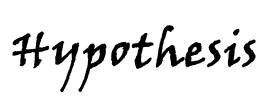SCIENCE of INFORMATION
The late 20th century has been dubbed The Information Age, due to the emergence of computers and digital communications. For similar reasons I like to refer to the 21st century as the Age of the Information Sciences. Several perplexing issues that resulted from the paradigm shift initiated by Einstein and the Quantum Theorists, along with the DNA discovery and subsequent Genetic theories, have finally come of age as separate scientific disciplines in recent years. This section will touch on a few, just to show how important the technical understanding of Information has become as the focus of post-postmodern sciences. Since most of these disciplines are still relatively new and controversial, they are all theories in search of empirical replication where possible, and rational verification where the immaterial subject matter rules out conventional scientific methods.
Some laymen are generally familiar with the basic concept of Information Theory as it relates to computers and electronic communications. But few of us, including the majority of scientists, have grasped the broad philosophical implications of the discovery that information is the substance of reality. In widely dispersed pockets, a few researchers are pursuing their individual interests in the field-with-no-name, that I call “Information Science”. I have mentioned a few of those pockets in these essays: Communication Theory, Artificial Intelligence/Life research, Chaos & Complexity research, Pre-Big Bang Cosmology, Quantum Programming, Darwinian Programming, Memetics/Cultural Evolution, Cybernetics and Robotics, Mob-Swarm-Crowd theory, Brain/Mind research, and so forth.
Most of those areas of study are still in the theoretical and hypothetical---hence, philosophical---stage of science. But I predict that, by the end of the 21st century, they will be considered established fields with practical applications. Science evolves, new paradigms emerge, and old fields of study fragment into sub-fields. But I believe that Information Science (the arithmetic of reality) promises to re-unite all fields of human understanding: Philosophy, Religion, and Science. In this section I will give a brief overview of a few of the key categories of Information Science in order to show how they are related to the hypothesis that the traditional narrow definition of Information has been forced to expand to fit all spheres of reality and all realms of knowledge. ●
Communication / Computer Theory :
In his book, DECODING THE UNIVERSE, mathematician Charles Seife says that, “Even if there were no such thing as a computer, information theory would still be the the third great revolution of twentieth-century physics”. He traces the roots of the modern theory back to the ancient art of code-making and code-breaking, where the meaning of secret communications was deliberately concealed within apparent nonsense or alternative meanings. From its political and military background, the necessity for encoding non-secret information became apparent as electronic means of communication, such as telegraph and telephone, began to run into accuracy and efficiency problems. In the 1950s a Bell Labs engineer, Claude Shannon, was assigned the problem of improving the carrying capacity of telephone lines. But first he had to develop a technical definition of a term that had stumped philosophers for centuries : what is information essentially? He found that information could be boiled down to a concept as simple as the difference between something and nothing. That clue led to the use of binary codes, and Boolean Logic, which made possible the use of digital computers to process information in ways that were only possible before in human minds–-and now far exceeds human cognitive abilities in many ways.
Shannon also noted that the essence of information can be conceived as a degree of uncertainty (a mental quality), where the number one (1) stands for 100% certainty and zero (0) symbolizes a total lack of knowledge. Soon that mind-expanding realization led to the application of Information Theory to many other fields as disparate as Thermodynamics, Quantum Theory, and Genetics. A quick review on Google or Wikipedia should be sufficient to give an overview of the various digital information technologies. So I won’t go into any more detail here, except to point-out that Artificial Intelligence research is an offshoot of this branch, and also overlaps with the Mind and Consciousness investigations of Neuroscientists and Philosophers. So what began as a purely practical and technical concern has now opened-up new avenues of investigation into the erstwhile mysteries of Nature and Culture.
According to Shannon's communication theory, energy is a form of Information in the sense that it is quantified by its degree of non-randomness–-enumerated by a statistical quality[18]. Randomness is scrambled information, while order is organized information. Abstract information is the basic building-block of embodied information, which is perceptible by the human brain as cognitive data, which is then processed by the mind into disembodied Meaning. The equivalence of mental Information and physical energy will be addressed in the next section. ●






























